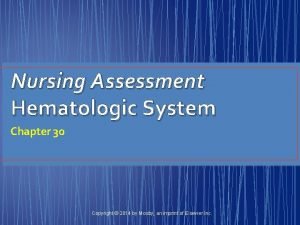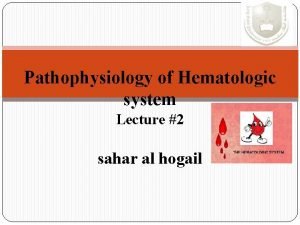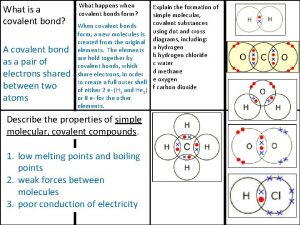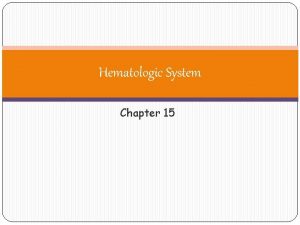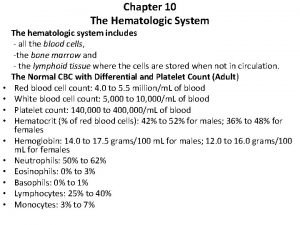Complete Molecular and Hematologic Response in Adult Patients




- Slides: 4

Complete Molecular and Hematologic Response in Adult Patients with Relapsed/Refractory (R/R) Philadelphia Chromosome-Positive B-Precursor Acute Lymphoblastic Leukemia (ALL) Following Treatment with Blinatumomab: Results from a Phase 2 Single-Arm, Multicenter Study (ALCANTARA) Martinelli G et al. Proc ASH 2015; Abstract 679.

ALCANTARA Trial: Blinatumomab in Relapsed/Refractory (R/R) Philadelphia Chromosome-Positive (Ph+) B-Cell Acute Lymphoblastic Leukemia (ALL) l l l Phase II, single-arm, multicenter study of blinatumomab, an anti. CD 19 targeted, bispecific T-cell engaging antibody construct N = 45 patients with Ph+ B-cell ALL – Resistant to a second- or third-generation tyrosine kinase inhibitor (TKI): n = 44 – Never exposed to a second- or third-generation TKI but resistant to imatinib: n = 1 Primary endpoint: Complete response (CR) or CR with partial hematologic recovery (CRh) CR/CRh (all patients): 16/45 (36%) – T 315 I mutation: 4/10 (40%) – ≥ 2 prior second-generation TKIs: 11/27 (41%) – Prior ponatinib: 8/23 (35%) – Age 18 to <55 years: 8/22 (36%); age ≥ 55 years: 8/23 (35%) Median overall survival (n = 45): 7. 1 months Median recurrence-free survival (RFS) (n = 16): 6. 7 months Martinelli G et al. Proc ASH 2015; Abstract 679.

ALCANTARA: Conclusions l Adverse events were consistent with those previously reported with blinatumomab for R/R Ph-negative ALL: – Cytokine release syndrome (n = 4, any grade), neurologic events (n = 21, any grade; n = 3, Grade 3) – Grade ≥ 3 treatment-emergent adverse events (n = 37) included febrile neutropenia (12), thrombocytopenia (10) and anemia (7) l Single-agent blinatumomab demonstrates antileukemic activity in patients with Ph+ R/R ALL after failure of 2 nd- or 3 rd-generation TKI, with a CR/CRh rate of 36%. l Hematologic and molecular responses were independent of mutational status, including the T 315 I mutation. l For patients <55 and ≥ 55 years of age: – Equivalent CR/CRh rates – Equivalent median RFS (5. 5 mo vs 6. 7 mo) l Among responders, 88% (14/16) achieved minimal residual diseasenegative status. Martinelli G et al. Proc ASH 2015; Abstract 679.

Investigator Commentary: Results of a Phase II Trial of Blinatumomab in Adult Patients with R/R Ph+ B-Precursor ALL The bispecific antibody blinatumomab has been approved for use in R/R Philadelphia chromosome-negative ALL. This antibody, which physically brings T cells together with CD 19 -positive lymphoblasts, has been highly effective in both advanced-disease and minimal residual disease settings. Although blinatumomab is known to have activity in Ph+ B-cell ALL, this study shows the potential value of using it in R/R Ph+ disease, yielding a 36% CR/CRh rate. Interview with Richard M Stone, MD, February 16, 2016

